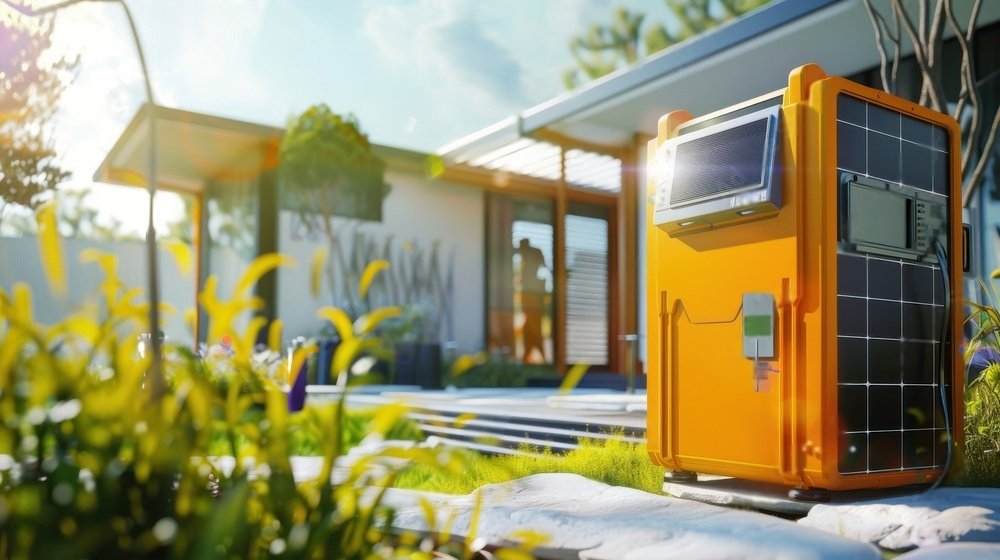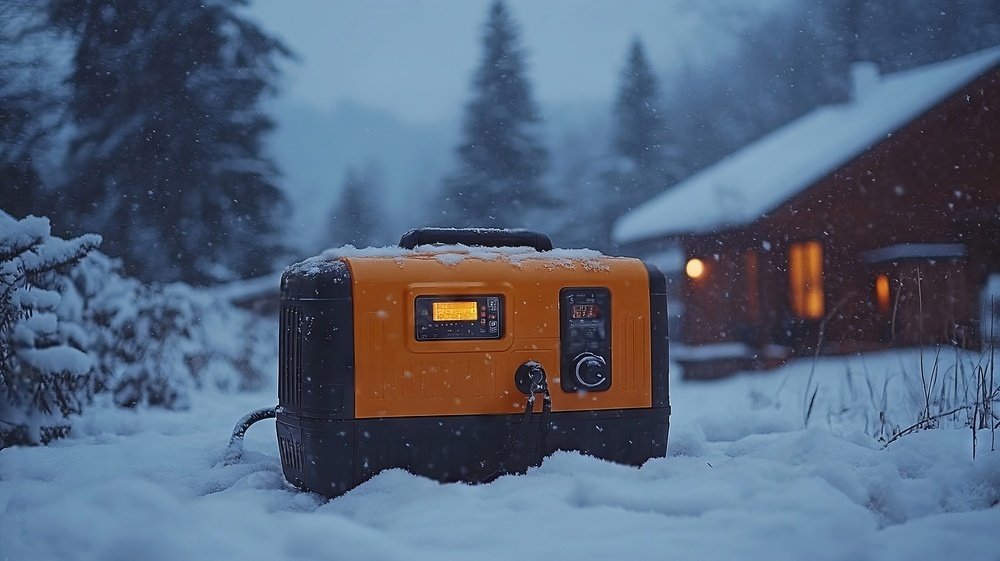Generators provide peace of mind when the grid lets you down and keeping your essential appliances running smoothly. In today’s unpredictable world having a reliable power source can be a true lifesaver.
While generators are the best resource for power backups. If your electricity consumption is high and you are considering a 26kW generator, it’s essential to know how long this generator can run on natural gas.
Typically, a 26kW generator A 26kW generator typically runs for 12 to 16 hours on a full tank of natural gas, depending on the load and specific conditions.
A recent study conducted by the U.S. Energy Information Administration provides insight into average household electricity usage, revealing that the typical American household uses approximately 877 kWh per month. This statistic highlights the need for substantial power generation during outages, especially for homes with higher electricity demands.
In this context, a 26kW generator can play a significant role. According to data from generator manufacturers, these units can efficiently handle heavy loads, making them suitable for large homes or small businesses that require continuous power during extended grid failures.
Understanding the Power of a 26kW Generator
A 26kW generator packs a punch, providing substantial power to meet the demands of most households during an outage. Designed to deliver reliable energy, these generators are particularly suitable for homes with high energy needs, such as those with multiple HVAC systems or large electrical appliances. Natural gas serves as a convenient and efficient fuel source, offering a continuous supply without the need for refueling.
By harnessing the power of natural gas, a 26kW generator offers an environmentally friendly option compared to diesel or propane alternatives. Its clean-burning properties result in fewer emissions, making it a responsible choice for eco-conscious homeowners. Additionally, natural gas is often more cost-effective, contributing to long-term savings on fuel costs.
To fully understand the runtime of a 26kW generator on natural gas, it’s important to consider various factors that influence its performance. These include the generator’s efficiency, the load it supports, and the availability of natural gas in your area.
Factors Influencing Generator Runtime on Natural Gas
Load Demand
One of the primary factors affecting the runtime of a 26kW generator on natural gas is the load demand it needs to meet. The more devices and appliances connected to the generator, the shorter the run time. High-demand systems such as HVAC units, electric ovens, and water heaters can significantly affect the total runtime by consuming a larger portion of the generated power.
Engine Efficiency
The efficiency of a generator’s engine plays a crucial role in determining how long it can run on natural gas. Engines with higher efficiency ratings convert fuel to energy more effectively, allowing for longer operational periods on the same amount of natural gas. Regular maintenance of the generator, including timely oil changes and inspections, ensures the engine maintains optimal efficiency.
Fuel Quality and Availability
The quality of natural gas and its availability directly impact the generator’s performance. High-quality natural gas results in more efficient burning and better energy output, contributing to extended runtime. Additionally, consistent supply without interruptions is essential for continuous operation, making it crucial to ensure a reliable source of natural gas in your area.
Climate and Environmental Conditions
Environmental conditions such as temperature, altitude, and humidity can influence generator performance. Extreme temperatures may cause the generator to work harder to maintain the same power output, potentially reducing runtime. Similarly, operating at higher altitudes can affect engine power and fuel consumption, as engines tend to lose efficiency with less oxygen available in the air.
Maintenance Practices
Regular maintenance and service schedules are vital for ensuring a generator’s longevity and efficiency. Clean filters, well-maintained spark plugs, and properly functioning fuel systems contribute to optimal performance. Following the manufacturer’s recommended maintenance guidelines helps maximize runtime and prevent potential issues that could interrupt power supply.
Tips for Extending the Runtime of Your Generator

Tip 1: Reduce Load Demand
Minimize the number of appliances and systems connected to the generator during an outage. Prioritize essential devices to reduce the overall load demand, which will help extend the generator’s runtime.
Tip 2: Perform Regular Maintenance
Adhere to a strict maintenance schedule to ensure the generator operates at maximum efficiency. Regularly check and replace air filters, spark plugs, and oil to keep the engine running smoothly.
Tip 3: Optimize Fuel Quality
Ensure you are using high-quality natural gas to enhance the generator’s efficiency. Avoid contaminants that can clog the system and reduce performance.
Tip 4: Monitor Ambient Conditions
Be aware of the operational environment, especially temperature and altitude. If operating in extreme conditions, consider additional cooling or ventilation to help maintain optimal efficiency.
Tip 5: Implement Load Management Strategies
Utilize load management strategies by scheduling the operation of high-demand appliances during off-peak times. This reduces the stress on the generator and helps maintain longer runtimes.
Tip 6: Ensure Secure Fuel Supply
Verify the reliability of your natural gas supply to prevent interruptions during extended power outages. A consistent fuel supply is critical for maximizing generator runtime.
Tip 7: Use Energy-Efficient Appliances
Whenever possible, use energy-efficient appliances and lighting, as they consume less power. Lower power consumption results in less strain on the generator, thereby extending its operational periods.
Natural Gas vs. Propane vs. Diesel Generators
When it comes to choosing a fuel source for your generator, understanding the differences between natural gas, propane, and diesel is crucial. Natural gas offers several advantages, including a continuous supply and lower emissions. It is also typically more affordable, making it a popular choice for residential use.
Propane generators are known for their portability and ease of storage. However, propane can be more expensive than natural gas, and its supply may need frequent refilling, especially during prolonged outages. Diesel generators, on the other hand, are renowned for their durability and high energy output. Yet, their environmental impact and higher cost make them less appealing for homeowners seeking an eco-friendly solution.
Ultimately, the choice between these fuel sources depends on individual needs and preferences. Natural gas stands out for its convenience, environmental benefits, and cost-effectiveness, making it a compelling option for powering a 26kW generator.
Home Appliance Energy Consumption Table
| Appliance Category | Typical Power Consumption (Watts) |
| Air Conditioners | Central AC: 1,000 – 4,000 |
| Heaters | Space Heaters: 750 – 1,500 |
| Washing Machines | 500 per cycle |
| Dryers | 3,000 per cycle |
| Entertainment Systems | LED TV: 30 – 100, Gaming Consoles: 70 – 300 |
| Refrigerators | 100 – 800 |
| Freezers | Similar to refrigerators |
| Lighting | LED: 75% less than incandescent bulbs |
| Computers and Home Office | Laptops: 50 – 100, Desktops: 200 – 400 |
| Cooking Appliances | Microwaves: 600 – 1,200, Electric Ovens: 1,000 – 5,000 |
What Size Battery for a Generac 26kW Generator?

When selecting a battery for a Generac 26kW generator, it is crucial to choose the right size to ensure reliable startup and operation. The recommended battery size for a Generac 26kW home standby generator is a Group 26R or Group 35 with a minimum rating of 540 cold cranking amps (CCA). These batteries provide the necessary power to start the generator efficiently, even in cold weather conditions, and help maintain optimal performance. It’s important to ensure the battery is of high quality, properly maintained, and replaced as needed to prevent failures and extend the life of your generator.
How Many BTUs is a 26kW Generac Generator?
To determine the British Thermal Units (BTUs) output of a 26kW Generac generator, it’s essential to understand the conversion between kilowatts and BTUs. One kilowatt is roughly equivalent to 3,412 BTUs per hour. Therefore, a 26kW generator can produce approximately 88,712 BTUs per hour (26 kW multiplied by 3,412 BTUs/kW). This conversion helps in assessing the generator’s heating capacity, especially when considering its efficiency in converting fuel to energy. It’s important to consult the specific model’s documentation for precise BTU ratings, as actual performance can vary based on conditions and generator model.
Conclusion:
In conclusion, a 26kW generator running on natural gas offers a robust solution for ensuring uninterrupted power to your home during outages. Its efficiency, environmental benefits, and cost-effectiveness make it an attractive choice for homeowners seeking a reliable backup power source.
By understanding the factors that influence generator runtime and implementing strategies to maximize efficiency, you can enjoy the benefits of a dependable power supply. Whether facing a temporary blackout or a prolonged outage, a 26kW generator can keep your home running smoothly.
For those considering this investment, consulting with professionals is essential to ensure your home’s infrastructure is equipped to support a generator of this capacity. With expert guidance, you can tailor your setup to meet your specific needs, securing peace of mind for years to come.




























































